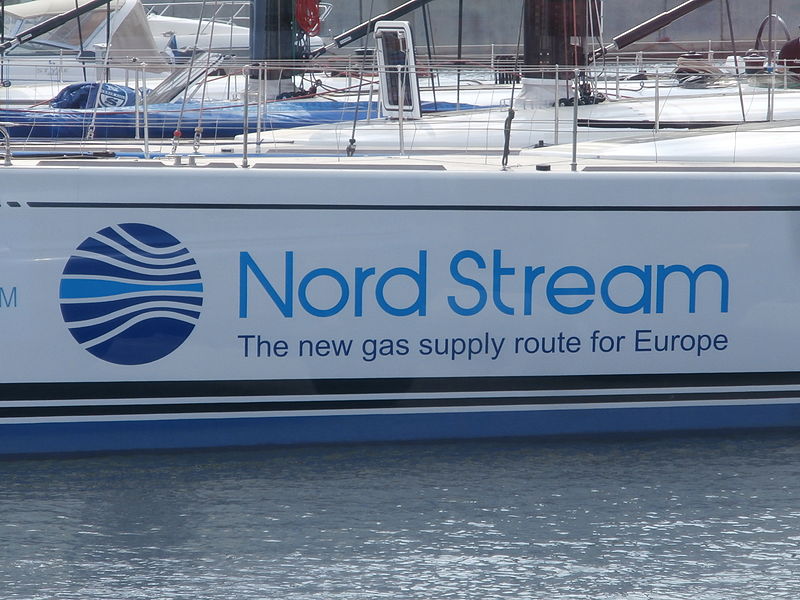Gazprom has launched legal action against Poland’s anti-trust regulator, UOKiK, after it imposed a fine on the Russian gas giant for its refusal to cooperate in an investigation into the Nord Stream 2 pipeline to bring gas from Russia to Germany.
The financial penalty – which at 213 million zloty (€48 million) is the larges UOKiK can levy – was issued earlier this month. The regulator said that it was the result of Gazprom failing to provide documentation relating to the Nord Stream 2 project.
Russian news agency RIA Novosti now reports that Gazprom has in turn launched action against UOKiK, accusing it of not providing evidence for the basis on which it issued its decision, according to Business Insider Polska.
Gazprom says that it filed the appeal to a competent Polish court on 24 August, reports Business Insider. However, neither the Russian firm nor UOKiK have provided any further details of the latest development in the case.
The Nord Stream 2 pipeline, 90% of which has been completed, is meant to double the capacity of Russia’s gas exports to Europe via the Baltic Sea. This has lead to concerns – expressed particularly strongly in Poland – that Gazprom’s growing market share could threaten Europe’s energy security.
Polish president Andrzej Duda says that the pipeline “threatens the energy stability of Europe”. Poland’s state-owned oil and gas company, PGNiG, has complained that Gazprom’s clout already allows it to charge elevated prices.
Earlier this year, in a separate case, PGNiG won an arbitration ruling against Gazprom, resulting in the Russian firm having to pay 6 billion zloty (€1.31 billion) to its Polish counterpart for inflated gas prices.
The Trump administration, which has forged close relations with Poland’s government, has also expressed its opposition to Nord Stream 2. In 2018, President Trump called the pipeline a “horrible thing”, and last year signed a law imposing sanctions on firms that help Gazprom complete construction.
In July, the US State Department removed a further sanctions exemption for the project. Earlier this month, three Republican senators threatened “crushing sanctions” against a German port involved in construction of the pipeline.
The withdrawal of a key pipe-laying vessel and the threat of further U.S. sanctions have thrown the project's future into question, FP's @ak_mack writes.https://t.co/FH9RkzOxZB
— Foreign Policy (@ForeignPolicy) August 7, 2020
When announcing UOKiK’s fine in early August, the head of the regulator, Tomasz Chróstny, explained that it was issued in relation “to the ongoing procedure around the establishment of a consortium to finance the construction of the Nord Stream 2 gas pipeline without the required consent [of UOKiK]”.
“At the beginning of the year, we asked Gazprom to provide us with contracts concluded by its subsidiary with other companies financing the construction of Nord Stream 2,” said Chróstny. “Despite the legal obligation to cooperate, the company failed to provide such information.”
Chróstny’s remarks refer to a long-running UOKiK investigation into the consortium behind the pipeline, which as well as Gazprom also included Shell, Engie, Uniper, BASF’s Wintershall unit and OMV.
UOKiK claims that the consortium had been established without its approval, making it illegitimate. UOKiK had objected in 2016 to its founding over concerns that the venture could lead to excessive market dominance.
After Gazprom failed to provide contracts related to transmission, distribution, sale, supply and storage of gaseous fuels, in May UOKiK launched an enquiry into a potential breach of Polish laws.
“To my mind, it is a deliberate act, the aim of which was to obstruct the ongoing proceedings,” said Chróstny, noting that Gazprom “has not even applied to the Russian Ministry of Energy for approval to pass on information”, as it would be required to do.
Gazprom, in its defence, has said that the information requested by the Polish regulator was not relevant to the subject of the antitrust investigation, and that it would appeal UOKiK’s decision in court.
Russian gas currently covers around 60% of Poland’s annual demand of 18 billion cubic metres. The Polish government has been seeking to reduce its dependence on Russian energy, including through greater imports of liquefied natural gas (LNG) and recent restrictions on coal imports.
Last year, PGNiG officially notified Gazprom that it will not be prolonging its contract with the Russian gas provider beyond the current deal that expires in 2022.
Main image credit: Pjotr Mahhonin/Wikimedia Commons (under CC BY-SA 4.0)

Maria Wilczek is deputy editor of Notes from Poland. She is a regular writer for The Times, The Economist and Al Jazeera English, and has also featured in Foreign Policy, Politico Europe, The Spectator and Gazeta Wyborcza.




















